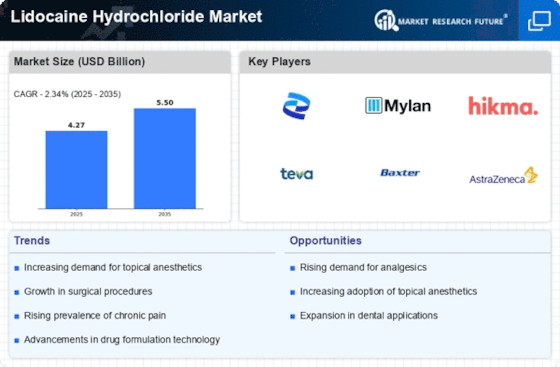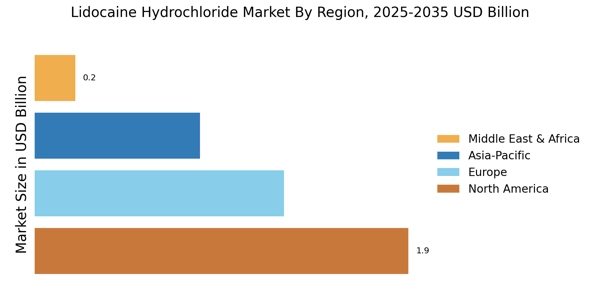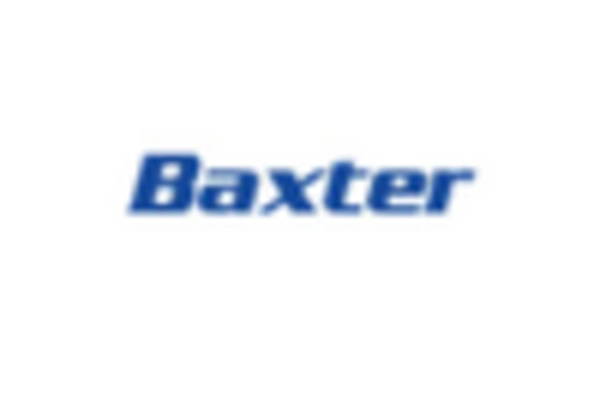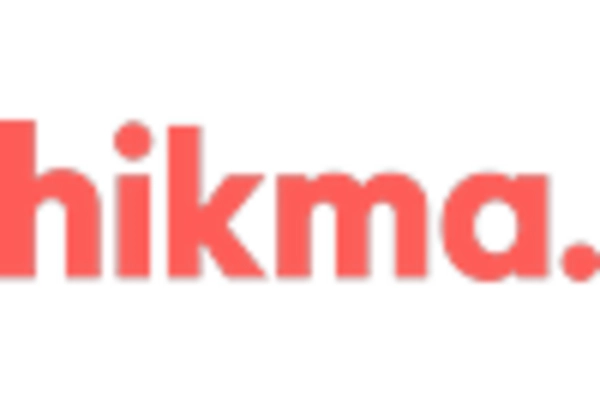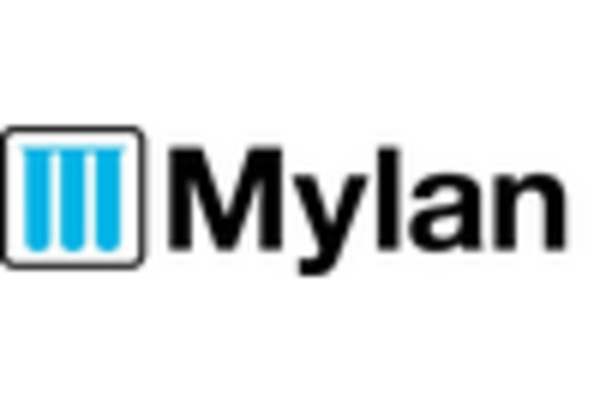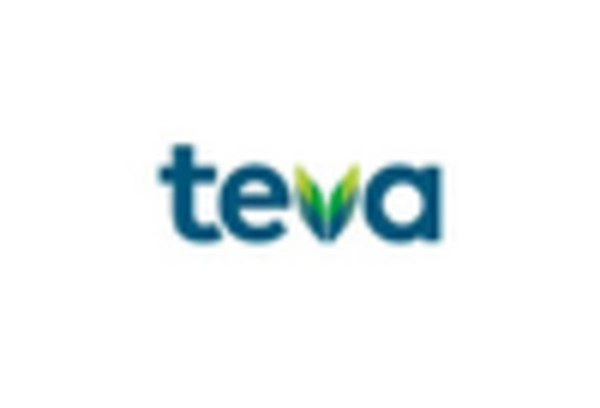Advancements in Anesthetic Techniques
The Lidocaine Hydrochloride Market Industry is benefiting from advancements in anesthetic techniques that enhance the efficacy and safety of lidocaine applications. Innovations such as ultrasound-guided regional anesthesia and the development of new delivery systems are revolutionizing how lidocaine is administered. These techniques not only improve the precision of anesthetic delivery but also minimize potential side effects, thereby increasing patient satisfaction. Furthermore, the integration of lidocaine in combination therapies is gaining traction, as it can enhance the overall effectiveness of pain management protocols. The market is witnessing a shift towards more sophisticated anesthetic practices, which is likely to bolster the demand for lidocaine hydrochloride. As healthcare professionals continue to adopt these advanced techniques, the Lidocaine Hydrochloride Market Industry is expected to expand significantly.
Regulatory Support for Anesthetic Products
The Lidocaine Hydrochloride Market Industry is positively influenced by regulatory support for anesthetic products, which facilitates the approval and availability of lidocaine formulations. Regulatory agencies are increasingly recognizing the importance of effective pain management solutions, leading to streamlined approval processes for new lidocaine products. This supportive regulatory environment encourages innovation and the introduction of novel formulations, such as topical gels and injectable solutions, which cater to diverse patient needs. Furthermore, the emphasis on patient safety and efficacy in anesthetic practices aligns with regulatory initiatives, fostering confidence among healthcare providers in the use of lidocaine hydrochloride. As regulatory frameworks continue to evolve, the Lidocaine Hydrochloride Market Industry is likely to experience enhanced growth opportunities.
Increasing Prevalence of Chronic Pain Conditions
The Lidocaine Hydrochloride Market Industry is experiencing a notable surge due to the increasing prevalence of chronic pain conditions. Conditions such as arthritis, neuropathic pain, and fibromyalgia are becoming more common, leading to a heightened demand for effective pain management solutions. According to recent estimates, chronic pain affects a significant portion of the population, prompting healthcare providers to seek reliable anesthetic options. Lidocaine hydrochloride, known for its efficacy in pain relief, is increasingly utilized in various medical settings, including outpatient procedures and surgical interventions. This trend indicates a growing recognition of lidocaine's role in enhancing patient comfort and recovery, thereby driving the market forward. As healthcare systems adapt to the rising burden of chronic pain, the Lidocaine Hydrochloride Market Industry is poised for substantial growth.
Rising Demand for Local Anesthetics in Dental Procedures
The Lidocaine Hydrochloride Market Industry is experiencing growth driven by the rising demand for local anesthetics in dental procedures. Lidocaine is widely recognized as the standard anesthetic for various dental treatments, including extractions, root canals, and periodontal surgeries. The increasing number of dental procedures performed annually, coupled with a growing awareness of pain management in dentistry, is propelling the demand for lidocaine hydrochloride. Market data indicates that the dental segment accounts for a substantial share of the overall anesthetic market, with lidocaine being the preferred choice among dental practitioners. This trend underscores the importance of effective pain control in enhancing patient experiences and outcomes in dental care. As the dental industry continues to evolve, the Lidocaine Hydrochloride Market Industry is likely to see sustained growth.
Expansion of Lidocaine Hydrochloride in Veterinary Medicine
The Lidocaine Hydrochloride Market Industry is witnessing an expansion into veterinary medicine, where lidocaine is increasingly utilized for pain management in animals. The growing recognition of animal welfare and the need for effective pain control in veterinary practices are driving this trend. Lidocaine is employed in various procedures, including surgeries and diagnostic interventions, to ensure the comfort of animals during treatment. The veterinary sector is evolving, with a rising number of clinics adopting advanced pain management protocols, which include the use of lidocaine hydrochloride. This shift not only enhances the quality of care provided to animals but also reflects a broader trend towards the integration of effective anesthetic solutions in veterinary medicine. As this market segment continues to grow, the Lidocaine Hydrochloride Market Industry is expected to benefit significantly.


